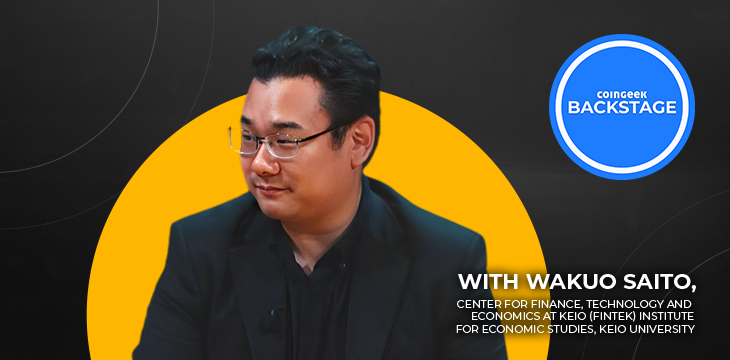How do you create a win-win situation for local and traditional businesses and international tourists in a country like Japan? Starting with making it easier for everyone to pay and earn. Luckily, this is one of the things blockchain does best. Wakuo Saito presented the tourism project “Dento” at the London Blockchain Conference 2024 in London last May and sat down to talk to CoinGeek Backstage about it.
You can watch Saito’s interview on CoinGeek’s YouTube channel, along with all the highlights from the London Blockchain Conference 2024 and more:
width=”560″ height=”315″ frameborder=”0″ allowfullscreen=”allowfullscreen”>
In recent years, Japan has been heavily promoting itself to foreign tourists. Its borders remained almost entirely closed during the “COVID era” of 2020-22, depriving any business that relied on traffic of a vital source of foreign revenue. Its promotional efforts included advertising, tour packages, and encouraging people working in tourism-related industries to use English (e.g., restaurants, hotels, taxi drivers).
While the campaign (and the depreciation of the local currency) has managed to boost the number of international travelers to the country, some problems remain. Tourists who visit Japan tend to visit big cities like Tokyo, Osaka, and Kobe. Smaller regions, which may be home to fascinating local industries and scenic landscapes, receive far less than their fair share of the tourism dollar.
Saito says this is mainly due to a lack of awareness and language barriers, which are more prevalent outside of metropolises. The slow adoption of digital point-of-sale systems and Japan’s lack of compatibility with international banking systems have also posed unexpected obstacles for tourists in the past. Again, the situation has improved slightly over the past decade, but not as much in rural areas.
Japan’s main tourist markets are Hong Kong, Taiwan, mainland China, the United States and Europe. Saito himself is from Tohoku, a region devastated by natural disasters in 2011 and perhaps in greater need of tourist attention.
“I want to decentralize the travel of people visiting Japan,” Saito says. “Not just in cities, but also in other rural areas.”
Dento’s blockchain and token solution
Dento’s digital token solution, developed with the help of nChain, is a payment mechanism that emphasizes convenience, portability, speed, ease of deployment, and security. Running on the BSV blockchain solves most of these problems: the network’s ability to scale to any transaction size or volume means there are no delays or congestion, and fees are low enough to be irrelevant. It also means that merchants who adopt the system don’t have to worry about dealing with major credit card companies or paying their huge service fees. For small businesses with low margins, this is a big advantage.
For years, believe it or not, competing with credit card companies on fees was one of the main promises of Bitcoin. That promise was abandoned, along with other benefits of Bitcoin, when BTC became the static “digital gold” asset it is today, but its original vision lives on today in the form of the BSV blockchain.
Saito emphasizes that much of Japan’s appeal (both domestically and internationally) lies in its cultural attachment to local traditions and customs. Dento’s system is designed to preserve these as much as possible, hence the project’s name, which literally means “tradition” in Japanese.
“I don’t want to radically change all rural industries. I want to encourage the preservation of traditions in rural areas,” he said.
The Dento project is both technological and marketing, so the digital token is just one element. The entire system includes a multilingual online portal for tourists to plan their trips, find deals, and obtain payment tokens. Once in Japan, tourists can make payments at participating businesses via QR codes with Dento’s mobile app. Local businesses that sign up will benefit from additional promotion and advertising through these channels, and accepting Dento tokens as a means of payment will encourage more tourists to spend money at these businesses.
Saito said the project will start with local trials in the Tohoku region, but he would like to see it adopted nationwide. This is also another potentially profitable use case for blockchain, where its technology truly becomes “the plumbing” — providing security and infrastructure without requiring any additional knowledge or skills from users.
Watch: Using Blockchain Technology for Data Integrity
width=”560″ height=”315″ frameborder=”0″ allowfullscreen=”allowfullscreen”>
New to blockchain? Check out CoinGeek’s Blockchain for Beginners, the ultimate resource guide to learning about blockchain technology.

